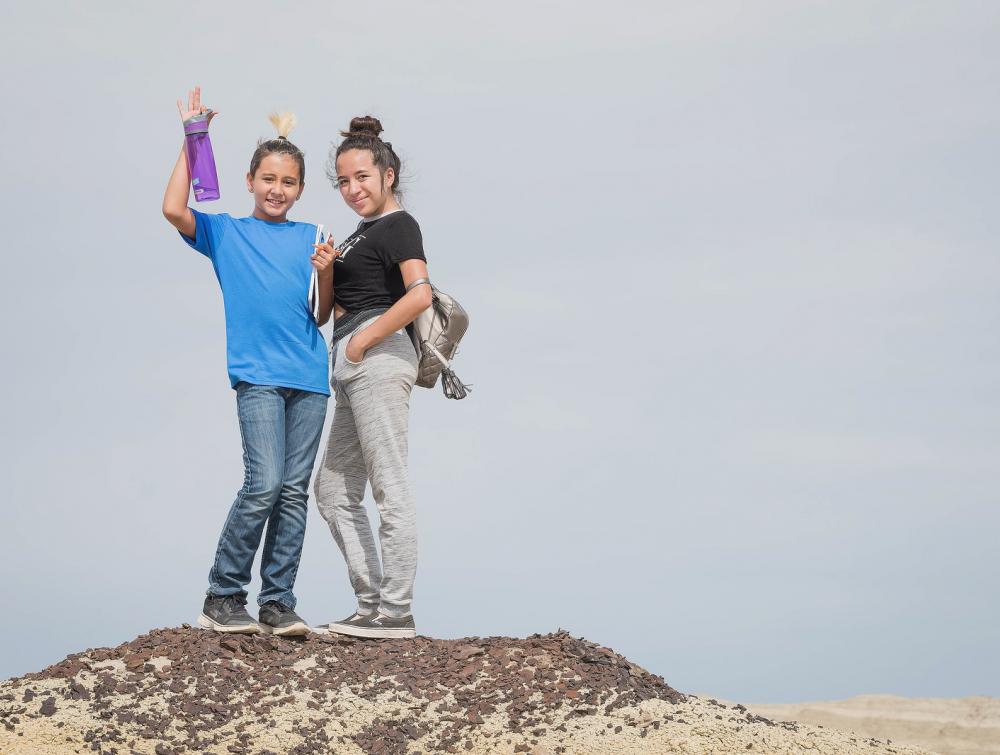Can wilderness boost your immune system? Some surprising answers

Young hikers exploring Ah-Shi-Sle-Pah Wilderness Study Area, New Mexico
Mason Cummings, The Wilderness Society
Chances are if you have spent a day or two in wilderness, you are familiar with the abundantly good feelings that can arise from such adventures.
Now new studies suggest that time outdoors can also boost your immune system.
In a recent article in Outside Magazine, "Take Two Hours of Pine Forest and Call Me in the Morning," Florence Williams details her experience as a participant in one study currently taking place in Japan that is demonstrating the many health benefits of time spent outdoors.
Already, there is a growing body of scientific research that shows that time spent in the great outdoors is physically and mentally beneficial. Scientists Yoshifumi Miyazaki and Qing Li in Japan are going even further than others have before by measuring what's happening in our cells when we get a breath of fresh air. So far their findings have been stunning - including that a one-day trip to a suburban park can boost immune activity for at least a week.
Miyazaki's Study: Decrease in stress hormone linked to outdoors
Miyazaki is a physiological anthropologist and vice director of Chiba University’s Center for Environment, Health and Field Sciences outside of Tokyo. In the past eight years, he has taken more than 600 research subjects into the woods, and not surprisingly they report better moods and lower anxiety.
His research has also shown that leisurely forest walks can lead to:
- 12.4% decrease in the stress hormone cortisol
- 7% decrease in sympathetic nerve activity (also known as "fight-or-flight" behaviors)
- 1.4% decrease in blood pressure
- 5.8% decrease in heart rate
"Throughout our evolution, we’ve spent 99.9 percent of our time in natural environments,” Miyazaki says. “Our physiological functions are still adapted to it. During everyday life, a feeling of comfort can be achieved if our rhythms are synchronized with those of the environment."
Li's Study: Hiking equals increase in white blood cells
Li is an immunologist in the department of hygiene and public health at Nippon Medical School in Tokyo, and chairman of the Society of Forest Medicine. Li collaborates with Miyazaki and is interested in nature’s effect on the human immune system.
He conducted a study in which tests revealed:
- After hiking twice a day for three days, participants' white blood cells had increased by 40%
- White blood cells remained 15% higher a month later
These results weren't found after urban walking trip, which indicates that the changes aren't from exercise alone.
Another study showed that a one-day trip to a suburban park boosted the levels of white blood cells and anticancer proteins for at least seven days afterward.
Li's short list of advice: “If you have time for a vacation, don’t go to a city. Go to a natural area. Try to go one weekend a month. Visit a park at least once a week. Gardening is good. On urban walks, try to walk under trees, not across fields. Go to a quiet place. Near water is also good."
“If you have time for a vacation, don’t go to a city. Go to a natural area." - Li
In Japan 'forest bathing' is a preventative medicine
Japan’s Forestry Agency has 48 official Forest Therapy trails, which are visited by 2.5 to 5 million every year. They are reserved for what is referred to as "forest bathing," a standard preventive medicine which entails hanging out in the woods.
The government has invested in this research as part of an effort to find sustainable ways to use the country's forests, and now other countries like South Korea and Finland are working on similar programs that link forestry to medicine.
Clearly, America's national forests provide clean drinking water, healthy air and fabulous recreation opportunities as well and this just adds one more reason to keep them protected.
